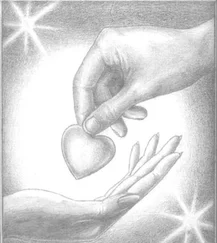She hopes that’s the issue. Maybe they’ve noted that she ignores the surgical-mask protocol, maybe they’ve decided she’s being too nice to the subjects during the Special Procedures. The head strokings, the forehead kisses, those marks of kindliness and personal attention just before she slides in the hypodermic needle: they aren’t forbidden, but they aren’t mandated. They’re flourishes, grace notes – little touches she’s added because it makes the whole thing a more quality experience, not only for the subject of the Procedure but for her as well. She does feel strongly that you should keep the human touch: she’s always been prepared to say as much in front of a tribunal if it came to that. Though she’s hoped it wouldn’t. But maybe now is the time it will.
“Oh no, I’m sure it’s nothing,” the clerk says. She adds that it’s just an administrative formality. Someone must have keyed in the wrong piece of code, such things happen and it can take a while to unsnarl them. Even with modern technology there’s always human error, and Charmaine will just have to be patient until they can trace what they can only assume is a bug in the works.
She nods and smiles. But they’re looking at her strangely (now there are two of them, now there are three behind the checkout desk, one of them texting on a cell), and there’s something odd in their voices: they aren’t telling the truth. She doesn’t think she’s imagining that.
“If you’ll wait in the Chat Room,” the one with the cellphone says, indicating a door to the side of the counter. “Away from the checkout process. Thank you. There’s a chair, you can sit down. The Human Resources Officer will be with you shortly.”
Charmaine looks over at the group of departing prisoners. Is that Sandi among them, and Veronica? She’s glimpsed them briefly over the months – they’re in prison when she is – but they aren’t in her knitting group and they don’t work in the hospital, so she’s had no reason to get close. Now, however, she longs for a friendly face. But they don’t see her, they’ve turned away. They’ve shed their orange prison boiler suits and are wearing their street clothing, they must be anticipating the fun times they’re about to have, outside.
As she was, just moments ago. She’s wearing a lacy white bra underneath her new cherry-coloured sweater. She chose these items a month ago to be special for Max today.
“What’s wrong?” one of the other women calls over to her. Someone from her knitting circle. Charmaine must be signalling distress, she must be making a sad face. She forces up the corners of her mouth.
“Nothing, really. Some data entry thing. I’ll be out later today,” she says as gaily as she can. But she doubts it. She can feel the sweat soaking into her sweater, underneath her arms. That bra will have to be washed, pronto. Most likely the cherry colour is leaking into it, and it’s so hard to get dye stains like that out of whites.
She sits on the wooden chair in the Chat Room, trying not to count the minutes, resisting the urge to go back out to the front desk and make a scene, which will definitely not be any use. And even if she does get out later that day, what about Max? Their meet-up, planned a month ago. At this very moment he must be scootering toward this month’s empty house – he told her the address last time and she memorized it, repeating it like a silent prayer as she lay in her narrow bed in her Positron Prison cell, in her poly-cotton standard-issue nightgown.
Max likes her to describe that nightgown. He likes her to tell him what torture it is for her to lie there alone, wearing that scratchy nightgown, tossing and turning and unable to sleep, thinking about him, living every word and touch over and over, tracing with her own hands the pathways across and into her flesh that his hands have taken. And then what, and then what? he’ll whisper as they lie together on the dirty floorboards. Tell me. Show me.
What he likes even better – because she can hardly bring herself to do it, he has to force it out of her word by word – what he likes even better is to have her describe what she’s feeling when it’s Stan who’s making love to her. Then what does he do? Tell me, show me. And then what do you feel?
I’m pretending it’s you, she’ll say. I have to, I have to do that. I’d go crazy otherwise, I couldn’t stand it . Which isn’t true really, but it’s what Max likes to hear.
Last time he went further. What if it were both of us at once? he said. Front and back. Tell me …
Oh no, I couldn’t! Not both at once! That’s …
I think you could. I think you want to. Look, you’re blushing. You’re a dirty little slut, aren’t you? You’d do the midget football team if there was room for them. You want to. Both of us at once. Say it.
At those moments she’d say anything. What he doesn’t know is that in a way it’s always both at once: whichever one she’s with, the other one is there with her as well, invisible, partaking, though at an unconscious level. Unconscious to him but conscious to her, because she holds them both in her consciousness, so carefully, like fragile meringues, or uncooked eggs, or baby birds. But she doesn’t think that’s a dirty thing, cherishing both at once: each of them has a different essence, and she happens to be good at treasuring the unique essence of a person. It’s a gift not everyone has.
And now, today, she’ll miss the meet-up with Max, and she has no way of warning him that she can’t be there. What will he think? He’ll arrive at the house early because, like her, he can hardly restrain himself. He lives for these encounters, he longs to crush her in his arms and ruin her clothing, ripping open zippers and buttons and even a seam or two, in the haste of his ardent, irresistible desire. He’ll wait and wait in the empty house, impatiently, pacing the stained, mud-crusted floor, looking out through the flyspecked windows. But she won’t appear. Will he assume she’s failed him? Dumped him? Blown him off? Abandoned him in a fit of cowardice, or of loyalty toward Stan?
Then there’s Stan himself. After the month he’s just spent as a prisoner in Positron, he’ll have turned in his boiler suit and put on his jeans and fleece jacket. He’ll have left the men’s wing in the Positron Prison complex; he’ll have scootered back through the streets of Consilience, which will be thronged with people in a festive mood, some streaming into the jail to take their turn as prisoners, others streaming out of it, back to their civilian lives.
Stan too will be waiting for her, not in an abandoned building dank with the aroma of long-ago drug parties and biker sex but in their own house, the house she thinks of as theirs. Or half theirs, anyway. Stan will be inside that house, in their familiar domestic nest, expecting her to turn up at any minute and put on her apron and cook dinner while he fools around with his tools in the garage. He may even be intending to tell her he’s missed her – he usually does that, though less recently – and give her a casual hug.
She relishes the casualness of those hugs: casual means he has no idea what she’s just been doing. He doesn’t realize she’s returning from a stolen hour with Max. She loves that expression – stolen hour. It’s so fifties. Like in the romantic movies they sometimes show on Consilience TV, where it comes out all right in the end.
Though stolen hour doesn’t make sense, when you come to think about it. It’s like stolen kisses: the stolen hour is about time, and the stolen kisses are about place, about whose lips go where. But how can those things be stolen? Who does the thieving? Is Stan the owner of that hour, and of those kisses too? Surely not. And even if he is, if he doesn’t know about the missing time and the missing kisses, how is she hurting him? There have been art thieves who’ve made exact copies of expensive paintings and substituted them for the real ones, and the owners have gone for months and even years without noticing. It’s like that.
Читать дальше












